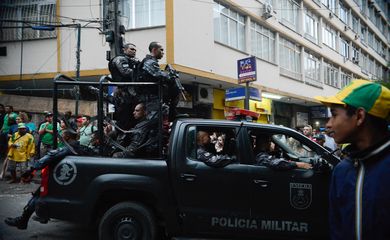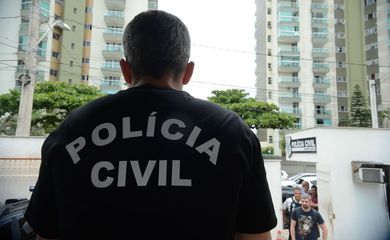STF goes back to judging restrictions on police operations in Rio de Janeiro

The Supreme Court (STF) returned to judge this Wednesday (15) the validity of the decision that restricted the carrying out of police operations in communities in Rio de Janeiro during the period of the covid-19 pandemic. So far, the voting score is tied at 1-1 for the maintenance of all measures.

The ministers began the judgment of an appeal that asks for action regarding the non-compliance with the decision handed down in 2020 by the case's rapporteur, Edson Fachin, according to which the operations may only be triggered in exceptional cases. Then, the injunction was confirmed by the plenary of the Court, during a virtual judgment.
By order, it was stated that the police must still justify the execution of the operations in writing and communicate them to the Public Ministry of the State of Rio de Janeiro, the body responsible for the external control of police activity.
The decision also limited the use of helicopters, determined the preservation of traces of crime and prohibited the use of schools and health units as operational bases for the Military and Civil Police.
This afternoon, Fachin reaffirmed his position by restricting operations. According to the minister, the decision has been disregarded and reinforced that the use of force should be the last resort of the State.
“The exceptionality [of the operations] is not an invention of the court, it is not a whim of the STF, it is a requirement of the state's obligation to guarantee life, protecting against arbitrary aggression. State violence is only justified when it seeks to protect a good equal to that which is about to be seriously harmed. Therefore, the use of lethal force is legitimate only if the other non-lethal means to protect the threatened life have been exhausted”, he argued.
Minister Alexandre de Moraes followed part of the rapporteur's vote, but he opened a divergence on some points. For Moraes, restrictions favor criminality, and the crisis in public security cannot be resolved by preventing police action.
Morares disagreed with some points determined by the rapporteur, such as the publication of the confidential protocols of the operations, the prohibition of the use of anonymous information to justify the entry into homes and the determination for the Council of the Public Ministry to supervise the Group of Specialized Action in Public Security ( Gaesp), a body specialized in investigating crimes committed by police officers.
“Public security is resolved with investment, with infrastructure, [more] with human resources than with court decisions. The rule of law cannot allow torture, stray bullets, abuse of authority. What worries me is that we try to solve the public security crisis by preventing public security from acting”, he said.
After the two votes cast in this Wednesday's session, the judgment was suspended and should only be resumed from February of next year, after a period of recess in the Court.
Text translated using artificial intelligence.




